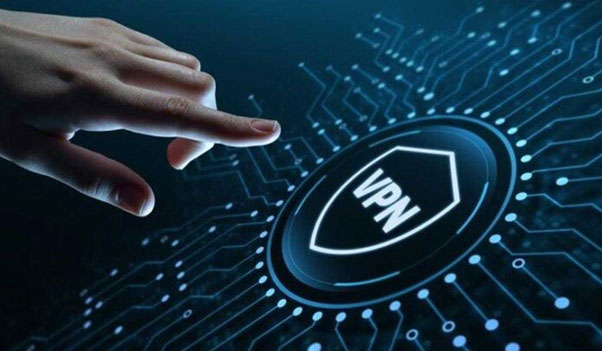| |
| The Crucial Role of VPNs in Software Development |
| |
| |
|
In this day and age, when online privacy is questioned, secure software development demands significant attention. With the widespread adoption of remote work, the significance of online security becomes even more apparent. It emphasizes the heightened urgency for remote software developers to effectively mitigate software vulnerabilities.
This blog provides concise yet comprehensive insights on ensuring secure software development in a remote environment. It highlights the role of remote access VPN (Virtual Private Network) in ensuring security and explores various VPN use cases and benefits.
|
|

|
|
| |
|
|
Developers can ensure the safeguarding of client data and intellectual property with the added security provided. They can also conduct competitor research and test websites from different countries. VPNs aid in preventing data leaks and enhancing online privacy. A VPN encrypts all data originating from the developer's computer and device, rendering it useless for hackers. This encryption is akin to the security measures employed by banks to protect customers.
App developers possess valuable intellectual property in the form of custom designs, apps, and other works, making them potential targets for information theft. This is especially important when using public Wi-Fi networks. Think about it, can the Wi-Fi owner see my internet history? Another good question: can Wi-Fi track search history and collect your data? Read more at the link. In short, yes. Protecting code with VPNs is an excellent practice, as is secure code repository access.
|
| |
| |
|
| |
|
A good developer should always ensure that their website or application is accessible from every country where it will be used. However, this can prove challenging, expensive, and risky if it requires the developer to travel to each country or grant access to third parties for testing. Fortunately, using a VPN eliminates all that hassle. The top-rated VPNs have servers worldwide and can help you test your work from any region you desire. If you frequently work on projects for different clients, opting for a service with lifetime accounts saves money and eliminates the need to renew subscriptions regularly.
|
| |
|
Web and app development can become a nightmare when regional restrictions prevent developers from accessing online services unavailable in their region. For example, if you require video tutorials but reside in a country without access to YouTube, your options diminish significantly, and you may even have to pay for expert services. VPNs offer a seamless solution by bypassing such restrictions.
|
| |
|
Using public Wi-Fi occasionally exposes you to potential network criminals who may hijack, steal, corrupt, or encrypt your data. Encrypting your data with a VPN ensures that even if malicious individuals acquire it, they won't be able to exploit it.
|
| |
|
Developers who prioritize safeguarding their own and their client's data cannot rely solely on perimeter defense. Certain hackers can breach such defenses effortlessly and access sensitive information. Implementing a VPN as an additional security measure to reinforce your security strategy significantly reduces potential points of attack for hackers.
|
| |
|
When developers encrypt their traffic and route it through a secure tunnel, it inevitably affects both upload and download speeds. The impact of this relies on factors such as the proximity between the user and the server, the number of concurrent users, the underlying bandwidth, and the hardware quality.
A fast VPN enables uninterrupted use throughout the day, without encountering common VPN problems like poor streaming quality or slow internet speeds. Notably, with the continuous advancements in cloud computing and distributed private networking, certain VPN service providers offer consistently high speeds across servers, while others do not.
|
| |
| |

|
|
|
Software development companies depend on their intellectual property (IP) to maintain a competitive edge in the industry. Theft of IP can result in severe repercussions, such as financial losses, reputational damage, and legal proceedings. VPNs play a crucial role in preventing IP theft as they encrypt all data transmitted across a network.
|
| |
|
Multiple groups often collaborate on the same software project. VPNs enable secure file sharing and communication, protecting sensitive data. A virtual private network lets employees safely access internal resources, such as shared drives and project management software, ensuring everyone has the necessary data without compromising security. VPNs also facilitate collaboration with partners and clients, without concern of unwanted third parties. This is especially crucial for firms that engage with external contractors, freelancers, or clients.
|
| |
| |
|
|
VPN is the basis of protecting software assets, which encrypts data and hides your IP address from all strangers. You shouldn't neglect such a valuable tool when you have valuable intellectual property. Moreover, you don’t know at what point a VPN can save your data, or maybe it has already saved it.
|
| |
| |
|
|
|
| |
| |
| |
| |
| |
| |